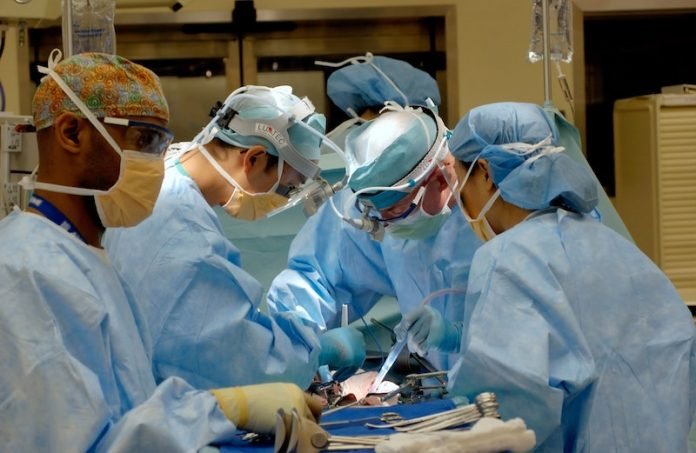
Scientists from Stanford University put a fine point on the concern that major surgery, which is highly invasive, may accelerate cognitive decline in some patients.
The findings point to a possible culprit for patients’ post-surgery befuddlement:
They found that major surgery, at least in the short term, drives up blood levels of a protein that we see as a particularly accurate indicator of Alzheimer’s disease progression.
Blood levels of a substance proven to be highly predictive of the onset of Alzheimer’s disease rose markedly during cardiac surgery and remained elevated for two days post-surgery, which was when levels were last measured.
The research is published in JAMA Neurology and was conducted by Martin Angst et al.
Heart surgery, a lengthy operation typically involving substantial tissue injury, is particularly stressful and causes inflammation throughout the body, including the brain.
So is cardiopulmonary bypass, an accompanying procedure during which an external device is used to pump a patient’s blood instead of the heart.
Researchers think this may explain reported losses of mental acuity after major surgery.
Post-operative impairment of memory, cognitive, and other mental functions has been reported among 40%-60% of cardiac surgery patients at discharge, with 20%-40% of such patients still experiencing symptoms three months after surgery and 10% of those patients developing sustained mental deficits lasting a year or longer.
In the study, the team analyzed blood samples taken from six patients (median age 65) undergoing cardiac surgery, which took more than 5½ hours and involved a cardiopulmonary bypass; and from eight patients (median age 76) undergoing hip-replacement surgery, a less rigorous but still substantial procedure that was completed within two hours.
They found during surgery, cardiac-surgery patients’ p-tau181 blood levels jumped more than 5-fold in every case, exceeding levels predictive of progression to Alzheimer’s.
Although these levels declined in the first two days after surgery, they remained higher than normal.
In hip-surgery patients, the increase, although present, was milder: a 2.5-fold rise in p-tau181.
The levels, which were slightly above those considered predictive of Alzheimer’s disease, remained high one and two days after surgery before returning to the normal range.
The team says there is no evidence from the study to suggest that any of the 14 patients went on or will go on to develop Alzheimer’s disease or any other cognitive problems.
But the results do pose a strong argument for larger, longer-term studies designed to chart major surgery’s cognitive effects over time.
Sign up for our newsletter for more information about this topic.
If you care about Alzheimer’s disease, please read studies about a new way to prevent Alzheimer’s disease, and medical cannabis can reduce this brain disorder.
For more information about brain health, please see recent studies about 13 things your doctor can check to help protect brain health, and results showing new drug for Alzheimer’s disease prevention is safe and effective.
Copyright © 2022 Knowridge Science Report. All rights reserved.



